Description
Children and adults with intellectual or developmental disabilities (IDD) and/or autism who display behaviour that challenges, are particularly vulnerable to being misunderstood and inappropriately supported, despite policy and best practice guidance. Children and adults whose behaviour challenges are also vulnerable to having fewer opportunities to engage in society, having their quality of life reduced, experiencing abusive or coercive practice, and being placed in schools or services many miles from home.
Many families of children whose behaviour challenges often remain likewise unheard and isolated. The intention is that upon reading the book family members and support staff will better understand behaviours and help to improve the quality of the lives of people with intellectual disabilities.
The book is split into four sections, each representing a crucial step in understanding behaviour that challenges. Part 1 presents fundamental approaches to thinking about and responding to behaviour that challenges. Part 2 is all about trying to understand the messages underpinning the behaviour. Part 3 is about putting into action the knowledge gained through exploring and assessment. Part 4 is reflective in nature and considers the real experiences arising from supporting people whose behaviour challenges and the implications.
The new edition is a complete revision and updating of content, aiming to address key knowledge requirements and concerns of people working in the field, with opportunities for reflection and professional development. The content is illustrated by case studies to help the reader explore how to best to address issues in practice.
You may also be interested in our Ten Rules for challenging behaviours.
Audience
This handbook will benefit:
Support workers and managers in learning disability service settings
Community learning disability teams
Psychologists
Psychiatrists
All professionals who support a person with a learning disability
Family members
Students of mental health and intellectual disability.
Contents
Challenging behaviour handbook running order
Part 1: Clearer Values
Foreword: Responding to a changing world
Peter Baker & Tony Osgood
What is behaviour that challenges?
Edwin Jones
Behaviour that challenges: how big is the problem?
Jon Mason
Positive behavioural support
Anne McDonald
Legal considerations
Rachel Forrester-Jones
Listening to people using services
Tony Osgood
Part 2: Gaining a Better Understanding
Assessing behaviour that challenges
Lawrence Patterson & Jenna Szymanski
Communication and behaviour that challenges
Jill Bradshaw
Conceptualising quality of life
Julie Beadle-Brown
Part 3: Delivering Support
Practice leadership and behaviour that challenges
Roy Deveaux
Building a good rapport
Maria Hurman
Getting the environment right
Sandy Toogood
Keeping people safe – reactive strategies
John Shephard
Learning new ways of behaving
Ciara Padden & Shelley Brady
Cognitive approaches to behaviour that challenges
Stephen C. Oathamshaw
The use of medication for the management of behaviours that challenge in people with intellectual disabilities
Shoumitro Deb
Part 4: Lessons Learned
We’re in this together: supported staff
Peter Baker & Nick Gore
Working together with families
Isabelle Garnett and Holly Young
Working for change: policy and practice contexts
Viv Cooper
Afterword
Tony Osgood and Peter Baker
Authors
Tony Osgood is a Senior Lecturer in Intellectual Disabilities at the Tizard Centre, University of Kent. He teaches on positive behaviour support, autism, intellectual disabilities, human services and challenging behaviour. He has a background in direct support work in the NHS and the private and voluntary sector. He is interested in service organisations, person-centred support, family support, inclusion, diversity, mindfulness and communities of practice. He has taught and lectured in the UK and Europe and has written extensively on a variety of topics. His first book on challenging behaviour, Supporting Positive Behaviour in Intellectual Disabilities & Autism: Practical Strategies for Working with Challenging Behaviour is to be published in 2019.
Dr Peter Baker (BCBA-D) is a Senior Lecturer in Intellectual Disability at the Tizard Centre, University of Kent. He worked as a Consultant Clinical Psychologist for the NHS in Sussex for over 20 years where he had leadership responsibilities for learning disability psychology services in East Sussex & Brighton & Hove. He lectures at the Tizard Centre on Certificate, Diploma, Graduate and Masters programmes and is widely published in the area of challenging behaviour and intellectual disability. He is the senior editor of the International Journal of Positive Behaviour Support.
Details
ISBN: 9781911028956
Publisher: Pavilion Publishing and Media Ltd
Publication date: 26th March 2019

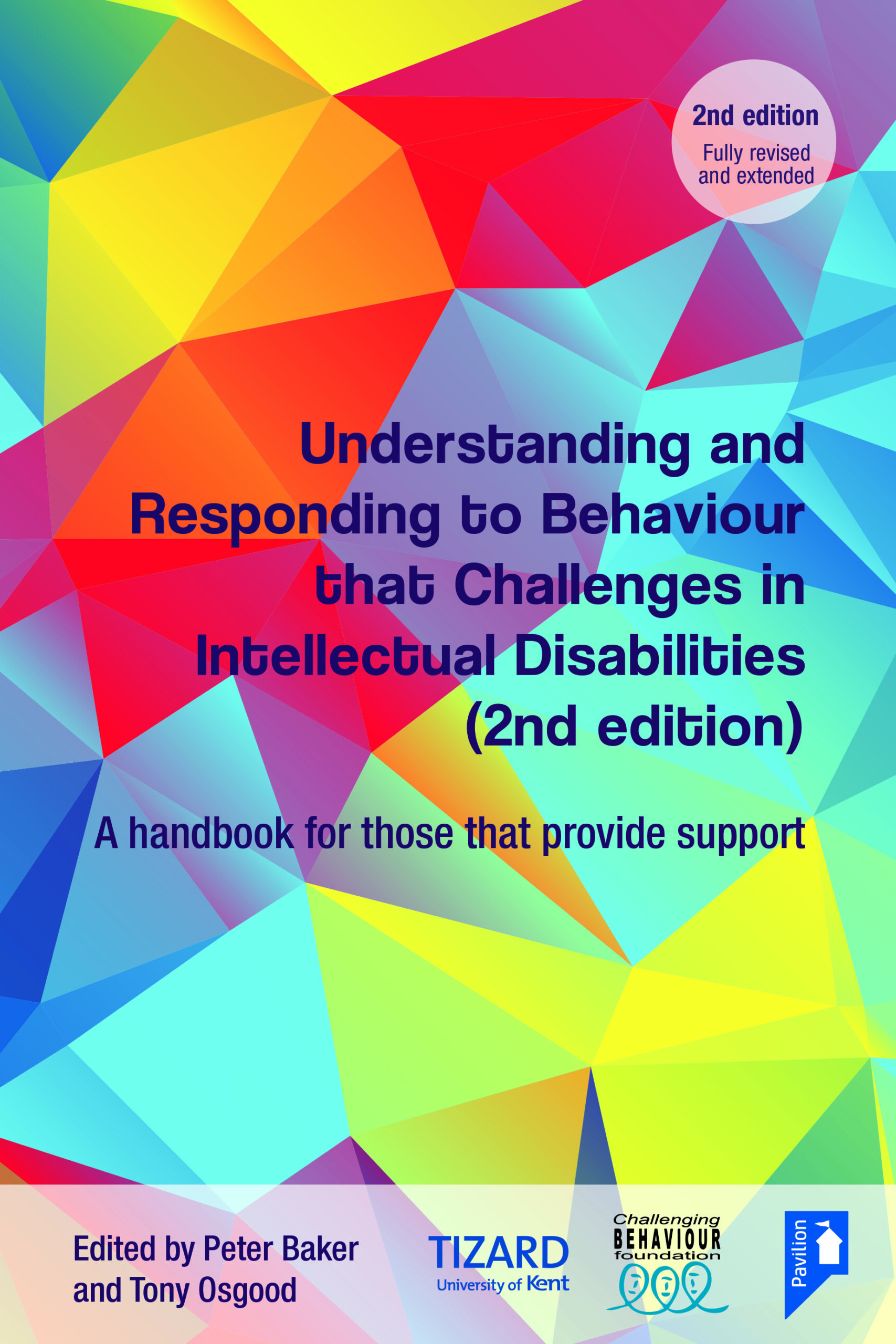
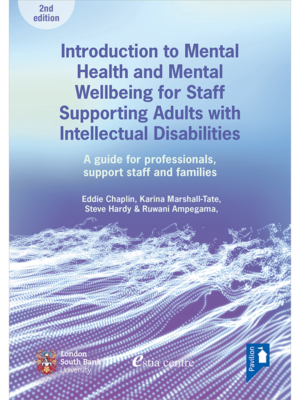
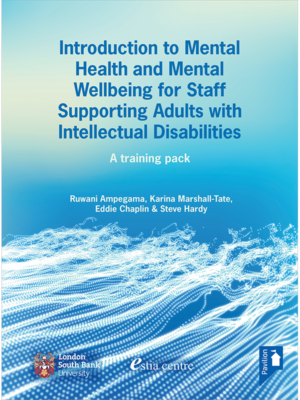
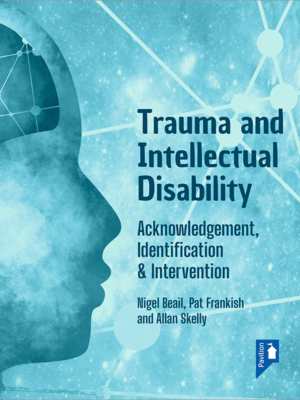

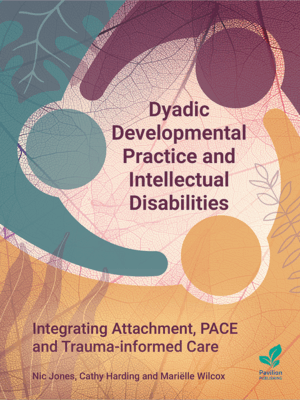
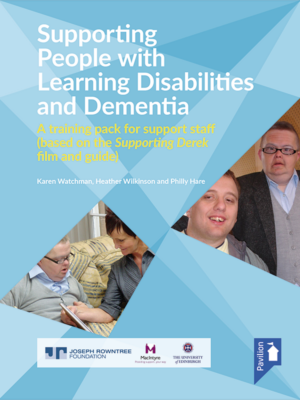
Rach1987 –
Fantastic book which covers all the up-to-date information regarding behaviours that challenge and positive behaviour support. It’s smaller than I expected and expensive for the size but the content is very good.
Amazon Review: https://www.amazon.co.uk/product-reviews/1911028952/ref=acr_dpx_hist_5?ie=UTF8&filterByStar=five_star&reviewerType=all_reviews#reviews-filter-bar
British Institute of Learning Disabilities News and Views –
British Institute of Learning Disabilities News and Views, New Book Review
http://www.bild.org.uk/about-bild/news-and-views/new-book-review-understanding-and-responding-to-behaviour-that-challenges-in-intellectual-disabilities-2nd-edition/
Sarah Leitch, BILD-RRN Director of Programme Development –
The international Journal of Positive Behavioural Support Book Review 9,1 August 2019